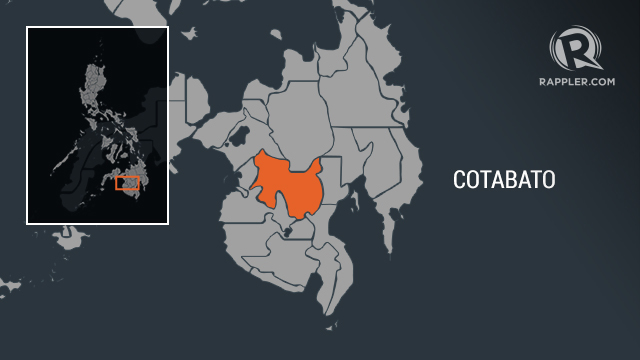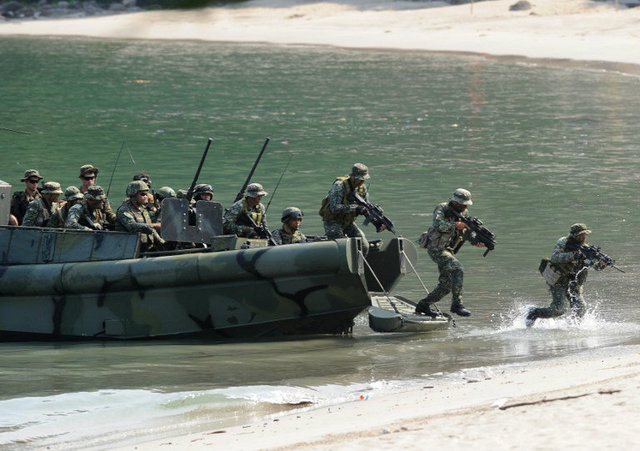From the Manila Times (Dec 23):
Winning the peace in Tarlac
IS peace possible in the birthplace of insurgency? Or is progress possible without peace? In this season of love and peace, both are possible in Tarlac province. This, even as the Armed Forces of the Philippines prepares a new plan to sustain peace and security in the countryside.
In a word, Tarlac is now a community where people could feel safe and sleep soundly at night. Credit to the local leaders who painstakingly explored all avenues to secure peace in the province.
How they did it was not simple, however but the fruits of the collective effort made all the hard work more than worth it.
From the 1970s until the 1990s, Tarlac was hardly the place local and foreign tourists, as well as residents of nearby places, would put on their list of places to visit. People were especially wary because talk was rife that the “western barrios” in San Jose town were rebel strongholds, the bailiwick of leftists whose operations spread out to the surrounding areas.
That was how it was then. It is a different scenario today. Anyone can wander around or live in Tarlac and not worry about his safety. Then governor and now 2nd District Rep. Vic Yap played a pivotal role in this. But the initiative to sue for peace actually began with his father, the late Rep. Jose “Tatang Aping” Yap.
It was hard going at the start. But the fruit of the dogged determination to win peace at all cost is a gift to Tarlaqueños. Today, what was once a dreaded place has become truly home, a haven of tranquility.
Road to peace
There were many stumbling blocks on the road to peace. Doubts clouded the horizon and there were many factors that made it almost impossible.
Tatang Aping’s role as a member of the country’s peace panel that engaged the Communist Party of the Philippines-New People’s Army-National Democratic Front headed by Jose Maria Sison in talks, has contributed much to this effort, and so his son Vic felt actively getting the peace process on the road must begin in his own backyard.
At the onset of the new millennium, serious efforts to attain peace intensified when a group of people gathered to form the organization that will soon become a symbol of goodwill.
After a series of secretly-held consultations and discussions among residents, rebels, and government officials, a pact to end all conflict was sealed. All sectors involved were backed up by Tatang Aping for his drive to win the peace that gave birth to the Sanctuary for Peace and Sustainable Development (SPSD) in 2007.
When Vic became governor that same year, he had two things in mind – peace and progress for his people. As both the SPSD and Vic shared the same vision, they maximized all efforts and means to capitalize the mountainous area of San Jose town.
Rebels were given livelihood as tourist guides while residents and government personalities served as overseers. Thus Tarlac’s tourism industry blossomed.
Yap believes there is progress in tourism. San Jose is home to the Jose V. Yap Sports Complex (formerly the Tarlac Recreational Park) that has already been the venue for national and regional events such as the Palarong Pambansa and Central Luzon Regional Athletic Association meet and other similar major activities. It also houses the Monasterio de Tarlac where the famous relic of Jesus Christ’s cross is on exhibit.
Expanding aggressiveness
As the SPSD was gaining ground, the death of Tatang Aping in 2010 came as a shock to the community. But his efforts to firmly establish peace and order in the province had taken root and strengthened the resolve of his heir Vic to be even more aggressive in making the peace they had gained last.
To re-affirm his commitment to peace, the young Yap expanded his administration’s thrust to boost the province’s tourism industry. Aside from San Jose town, neighboring areas like Santa Ignacia, Mayantoc, Camiling, and San Clemente swept in the momentum to identify potential tourist spots for development. It is in these places that “virgin” wonders were discovered.
New era
Then came the dawn of a new era for Tarlac – the province was declared a Conflict-Manageable, Development-Ready (CMDR) community in 2014 by the AFP through then Northern Luzon Command chief Lt. Gen. Gregorio Pio Catapang Jr. who later became Chief of Staff. It was a result of the various community development activities jointly fulfilled by the Yap administration and the AFP’s 3rd Mechanized Infantry Battalion through the latter’s “Bayanihan” Operations.
The 3rd MIB pilot tested the concept and launched its first Bayanihan Operations in the Municipality of Capas on April 16, 2007. The inter-agency convergence effort was put into motion in a simple ceremony at the municipal hall.
Seeing it as a viable vehicle toward achieving peace, the Bayanihan (Insurgency-Free Tarlac Campaign) was formally launched on May 27, 2008.
Since then, numerous community projects have been conducted and have won the trust of the residents making them steady partners of government in the efforts to maintain harmony.
The Bantay Bayanihan (BB) – a civil society organization that serves as an oversight body over the armed forces – also contributed in making the province as a CMDR owing to its important role in monitoring the military’s implementation of the Internal Peace and Security Plan (IPSP), or the Bayanihan.
As an oversight body and space for dialogue between the people and government, BB is critical in ensuring that human rights are protected as the IPSP is being implemented. Because
no human rights violations have been reported since the introduction of the BB national in 2011 and in Tarlac in 2013, the province became a symbol of hope for the nation’s peace advocacy. In fact, Tarlac is the first province to present its peace and security plan during the BB national assembly in November 2014.
No letting up
Given these achievements, Yap shows no sign of letting up as he feels even more responsible for keeping peace and order in his area. The province’s capital City of Tarlac, for example, is his next target to clear of spoilers of peace and those that fuel conflicts manifested through a series of crime and killings that no other local officials can solve, at least in the history of past administrations.
He also called for the localization of labor issues to sustain lasting industrial peace in the province, a step, he said, that would ensure progress for the people and the community.
Knowing that labor unions are essential for acquiring healthy working conditions, Yap, however, believes that such unions should focus on issues besetting their respective company and stay away from “unnecessary” activities that involve militant organizations.
Vic also noted the simple way of resolving issues revolving around local companies is by sitting down to negotiate instead of taking to the streets and creating a chain of repercussions such as miscommunications and misinformation, traffic jams, and worse, violence that result in more chaos.
A peaceful place
With all the means to live and flourish in an environment that promotes harmony, Tarlac is now ready to become a safe, if not the safest, place to live in. Governor Vic Yap sees no reason why it cannot happen as all the necessary steps for peace have been laid.
He believes that Tarlac, the birthplace of insurgency some 50 years ago (Bernabe “Ka Dante” Buscayno on March 29, 1969 founded the CPP-NPA), can become a bastion of peace.
Meanwhile, the AFP is set to implement a new campaign plan against security threats starting January 2017 as disclosed by public affairs office chief Marine Col. Edgard Arevalo.
The new plan is expected to replace the IPSP launched in December 22, 2010, then President Benigno Aquino 3rd’s peace and security strategy.
Although IPSP was a success in Tarlac, it has been criticized by human rights groups for alleged extrajudicial killings, abductions, tortures and mass displacements committed by the military and its agents in other areas of the country.
Lt. Col. Roderick Balbanero, 3rd MIB commanding officer, said the program was a success and a good strategy in the efforts toward securing peace and security.
However, he said it doesn’t conform to the current administration’s (President Rodrigo Duterte’s) priority programs. While there are no (more) focused military operations in the area, peace-building and confidence-building efforts must be carefully studied.
“I would recommend a new campaign plan for peace-keeping and a peace-building strategy to support the peace process. Our country had suffered many losses in lives due to endless disputes and wars among ourselves. Maybe we can begin with the Comprehensive Local Integration Plan and Local Peace Talks,” Balbanero said.
http://www.manilatimes.net/winning-peace-tarlac/303407/






